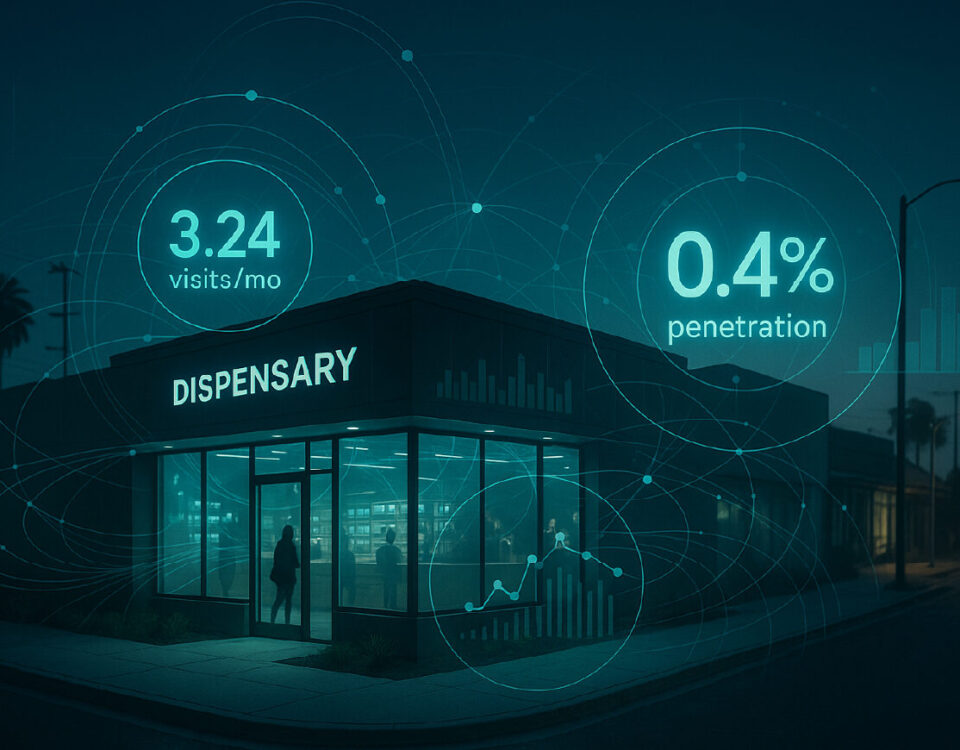Acquisition-Side Due Diligence in The Legal Cannabis Industry: Approach and Expectations for Both Sides

Something to Declare: Legalized Cannabis Leads to Fewer Border Interceptions
April 8, 2018
Slowing the Tide of Imported Cannabis
April 8, 2018By Greg Chin, Kevin Michaelan and Jeffrey Michelson, Partner
Continuing with the topic of industry trends from our last post, we explore the art of acquisition-side due diligence from full-scope financial and tax to limited-scope tax-only engagements. We’ll look at what to expect and how to approach it. Although commonly geared toward the investor/acquirer, i.e., “the other side of the table”—the potential issuer/seller/target–can benefit from what is presented to the suitor if it is done in good faith.
Introduction
While the cannabis trade has been around for thousands of years, accounting professionals in the U.S. have only begun to focus on it as a bona fide industry for the past few years, as more and more states legalize the use of marijuana for both medical and adult-use or recreational purposes. Because of this legalization, companies are sprouting up across the business map looking to take part in this emerging industry. The rapid growth of this somewhat ready-made market is attracting investors. Although organic growth remains a core strategy for many, we expect acquisitions by strategic and financial buyers to accelerate.
The entrance of more sophisticated and institutional investors has emphasized the need for sound financial and tax due diligence to help ensure investors understand what they are buying. However, the federal prohibition on cannabis and the nascence of this industry have contributed to cannabis businesses being underserved. Many professional services service firms have been reluctant to dip their toes into the cannabis pool. Accordingly, little authoritative guidance exists concerning accounting and financial reporting matters.
Getting Into the Details of Due Diligence
Given that business licenses and other agreements are not freely transferrable, deals are being structured as investments in an existing operator or company, and therefore structured as acquisitions of stock rather than purchases of only business assets. As such, additional time and money will be spent considering the past activity, legal and tax history of the business as a going concern. Regardless, the goal for the purchaser/investor is to know what you’re buying and what opportunities exist to improve the target.
You can expect the following:
- Depending on the transaction, regulatory approval is not uncommon and both parties should expect to interact directly or indirectly with state and local regulators and elected officials throughout the process. Advice to the issuer/target: start the dialogue with regulators and elected officials sooner than later.
- The process will take longer than expected, particularly if a timeline isn’t established and/or the issuer/target doesn’t have the bandwidth/capacity to meet the demands and additional responsibilities related to it (in the form of meetings, calls, requests, etc.). Time is not your friend and time is money. The longer the process takes the more likely the deal won’t close. The number of reasons for failure vary. One common reason is that the demand for capital is arguably higher than the supply. Advice to the issuer/target: realistically assess your existing legal and accounting team’s ability and availability to meet an investor/acquirer’s timeline and to fill any gaps.
- The issuer/target will unlikely have audited financial statements and the financial statements they typically prepare are often not likely to be prepared in accordance with GAAP. This will result in additional time and money to review supporting documentation and to make the necessary adjustments. Note to issuer/target: although a review or audit is a compliance driven exercise only for banks and investors, don’t wait until you need one. Approach this reality with the perspective that the findings should be used to improve your business processes and that it will better prepare you to raise capital or sell.
- Most states limit cannabis sales to registered patients and require dispensaries to utilize seed-to-sale systems to prevent diversion and unauthorized sales. A common pain-point for dispensaries is the integration of their seed-to-sale software and their accounting and financial reporting software. This leads to discrepancies that must be reconciled and estimates that must be evaluated. Note to issuers/targets: prepare reconciliations and compare estimates to actuals at least monthly.
- Continuing the shortfall of integrated operational and financial data, Investors/acquirers are likely to find gaps and discrepancies in the information to dissect the target’s business model, stress test it, and evaluate improvements. The more the operations and finances don’t tie-in nicely, the more likely additional procedures are needed to gain investor comfort. Advice to issuer/target: know your gaps and discrepancies and be prepared to explain them understanding that your investor/acquirer’s goal is realizing the future expected performance of the company to meet their expected rate of return.
- Depending on what state(s) the issuer/target operates in, limited access to commercial banking will result in sales heavily transacted in cash and/or vendor payments transacted through personnel credit cards. This will generally lead the investor/acquirer to perform additional procedures to gain comfort that sales and purchases are complete and accurate. Note to issuers/targets: implement a system to corroborate cash receipts and product sales along with controls to limit manipulation. Similarly, implement systems and controls to approve vendors and limit transactions with them to the needs of the business.
- Investors/acquirers are focused on not paying for the mistakes of the past and having a plan for resolving those mistakes. A common issue is taxes. Most immediately think of income taxes and federal IRC section 280E. However, many aren’t thinking about the risks and opportunities related to other taxes, such as: sales and use, property, and payroll taxes. Note to issuers/targets: don’t overlook these other critical tax areas because investors/acquirers will ask for a price adjustment for the unpaid taxes and they typically are not going to alert you to any overpaid taxes that might generate substantial tax refunds after the sale.
GAAP Accounting Details
While U.S. Generally Accepted Accounting Principles (GAAP) does not have specific guidance directly related to the cannabis industry, current guidance steers users toward agriculture accounting, which is generally discussed within Accounting Statement Codification (ASC) Topic 905 (ASC Topic 905) or IAS 41 Agriculture (issued by the IASB in 2000).
However, for many businesses within the cannabis space, the need for GAAP-compliant financial statements are rarely given, because: 1) the likelihood that these businesses can secure bank-issued debt, which would require audited financial statements is low; and 2) most businesses are still in “start-up” mode and are not large enough to require audits. Additionally, emerging businesses without sophisticated financial accounting management or support often report on a cash basis rather than in accordance with GAAP.
As such, the primary guidance these businesses are likely to follow surrounds federal income tax guidance enacted by Congress in 1982, titled Internal Revenue Code Section 280E, which details income tax rules for certain cost deductions for production-related business expenses of marijuana-related businesses, including resellers and producers (see more detail below). Due to these tax law provisions, most cannabis businesses will prepare internal and external financial statements that follow the IRC 280E tax guidance, but which may not be consistent with U.S. GAAP.
Other Considerations
It’s not uncommon for operators to be vertically integrated, which adds a layer of business and accounting complexity often not found in a small business. Aside from the usual concerns of a manufacturer and retailer with limited financial accounting support, the following are some areas that should be considered addressed when performing due diligence:
- Inventory valuation: Understanding the calculation of inventory should be of primary importance within a due diligence process. The valuation of all facets of inventory, including plants, buds and finished products may be rudimentary in nature and may not be calculated on a consistent basis.
A few additional considerations must be looked at, including:
- Cost classifications: As businesses are likely following 280E income tax guidance, they may be aggressive with the classification of departments and certain general and administrative expenses (G & A) into cost of goods sold, and thus, the valuation of inventory.Certain costs such as: 1) insurance; 2) professional fees; 3) royalty or licensing fees; and 4) office supplies are generally not permitted to be capitalized into inventory under U.S. GAAP.
- Capitalization polices: As noted above, businesses may be aggressive in including costs within inventory. A full review of the businesses’ capitalization policies should be performed to ensure consistency and reasonableness based on the production process of the specific business.
- Inventory reserves: Depending on the specific business, the potential for an inventory reserve may be required to reduce the value of the on-hand marijuana plants. This may be required if the business has historically produced more plants than required for production, which would likely result in a high level of plant removals.
- Review of the underlying seed-to-sale tracking system: It will be important to review and understand how information is generated, tracked and manipulated within the seed-to-sale-tracking system. Like any financial reporting system, these are heavily reliant on proper setup and user interface to properly generate information that is consistent and reliable. If the management of the business does not understand how information is produced, there can be little comfort that costs are being tracked and categorized properly.
- Some businesses may rely on outside accountants or consultants to maintain the seed-to-sale system and perform inventory calculations on a periodic basis.
- Ensuring a proper understanding of the system should be an important part of the diligence process.
- Operational agreements: Given the quickly changing nature of the industry, any business in the cannabis space is likely to have agreements with third-parties to provide operational and educational know-how. Understanding the nature of these agreements and the costs associated with them will be important to understand and highlight the need to think about potential replacement costs should these agreements not exist post-closing.
- Regulatory costs: The review of regulatory costs to: 1) set-up the business (i.e. start-up costs); and 2) continue operating the business should be reviewed and understood to determine the continuing nature of these costs. In addition, any professional fees associated with these costs should be properly understood as the run-rate for professional fees may change going forward.
- Cash proof of revenue: Because most cannabis enterprises, particularly resellers, are likely to be cash businesses, performing a cash proof could provide comfort about the accuracy of reported revenue.
Conclusion
With rapid growth of regional markets, investors are more than curious about this industry. Already, sophisticated and institutional investors have emphasized the need for sound financial and tax due diligence to ensure they understand what is for sale, despite limited authoritative guidance concerning accounting and financial reporting matters. Those that seek trusted advisors to help navigate the financial uncertainty endemic to cannabis industry will be in the best position to benefit when other U.S. states follow suit and legalize the product.




